I am but one of thousands of proud sons, daughters, nieces, nephews and grandchildren whose relative fought in the Philippines during the early months of World War II. Those of us who have been in the environs of POW groups or have done independent study, understand why so little is known of the trials of those on Bataan, Corregidor and other Islands of the Philippines.
There are two major reasons in my estimation for this lack of knowledge. First let me state that I am not a scholar nor a historian. I have read and researched extensively. I have also communicated with a number of surviving Philippine combatants, my father being one of them. If I have a bias, it was transmitted to me by my father. One cannot discount the magnitude or effect that a parent has on your perception of events when they were a direct participant in your area of study. It is also impossible to remove the emotion from what I write for the events that I write about are emotional in nature. I have learned that some things are beyond the power of words to describe. One cannot delve into the history of this epic battle without believing that life is an incomparable privilege. Like the tides of the ocean, life hurls its waves at whatever obstacles oppose it. For anyone, much less thousands, to have survived the battleground, the diseases, the brutal treatment, and malnourishment is a testament to the men who survived those grinding years. I am also compelled to honor those who did not survive. Those who were killed in combat, those who did not have the physical make up to withstand the indigenous diseases of the area, those so undernourished and had not the strength to withstand the rigors of the DEATH MARCH and imprisonment, those singled out by nameless enemy soldiers for torture and death, those unfortunate enough to have been placed on a doomed hellship,those who perished as slave labor for jobs considered too dangerous for Japanese laborers and the countless other ways to die at the hands of of an enemy who has so little regard for life. Ask any survivor and they will tell you that the real hero's didn't come home to their families.
My father once said that hope can only be extinguished with our lives. It is the one thing that makes life bearable. It was the one thing that kept him going. That tomorrow would be a better day.
We are never more than a fleeting moment, and since each of our moments governs the one that follows it, we have to judge them as a whole and by their effects. We humans are curious creatures. We believe we are masters of the universe yet we we live on a trembling planet with entrails of fire beneath its flowers. At times I believe that we are the products of a defective creation. We do not live long enough to put what we have learned to use. Each new generation has to disappear into the light of maturity, yet often it does not arrive soon enough. Imagination is quick and knowledge is slow and we tend to lose our imagination as we age. Knowledge being the ore that is mined from thought hurls us into the future, yet knowledge evolves faster than our emotions which tend to send us on a path to destruction.
Let me get back to what I believe to be the two main reasons why the defenders of the Philippines are not remembered or regarded by the citizens of today.
First of all, the fall of the Philippines was a defeat. One of many defeats in the early stages of the war.It was the largest surrender of American forces in the history of our country. Valiant as the battle may have been, in the overall totality of the war, it was only one battle of very many in a war lasting for almost four years and a war on two fronts. Victories give us hope and pride.We remember the "Battle of the Bulge" and the Victory of "Iwojima". Hero's and movies are made from victories. Most of the POWS from the Philippine conflict did not consider themselves hero's. They did not come home to waving flags. The came home emotionally and physically damaged. It took years for some to talk and write about their experiences. Some never could. They came home feeling they had been betrayed by their country. Not exactly the stuff of a best selling novel. It took years for this country and historians to shed some light on the fact that the tremendous fight and sacrifice by Filipino and American soldiers gave our country the time to congeal into a force to be reckoned with, as they tied the hands of the Japanese forces in the Philippines and elsewhere in the Pacific. The war may have taken a much different course and lasted much longer.
Secondly, General Douglas MacArthur was much more interested in his legacy than the safety and judicious use of his men. MacArthur controlled any news from the Philippines during the battle for the Philippines as well as information after the war regarding information on POW's. Nothing unflattering about him ever made the news. MacArthur committed a number of serious military blunders in the early days of the Philippine Campaign in his disastrous attempt to meet Japanese thrusts everywhere, a strategy based on his exaggerated estimate of the prowess of the Philippine Army. In addition, his failure to transfer the vast food stocks that had been earlier assembled for removal to the Bataan Peninsula resulted in the largely unnecessary hunger that so debilitated its doomed defenders. His failure to protect the small air force under his command with the knowledge that Pearl Harbor had been attacked is beyond belief. His disbelief of the condition of his troops after months of fighting on half and quarter rations defies logic. Visiting Bataan only once during the four and one half months of vicious combat speaks for itself. The decision to award him the Medal of honor was a political one. Nothing he had done militarily in the Philippines warranted the medal. The country needed a hero and he was more than willing to be that hero. It is also shameful that he was against General Wainwright receiving the same honor. He snubbed General King after the war for surrendering against his orders. This in itself shows his complete disregard for the men under his command in the Philippines, whom he was so ready to sacrifice to the last man. To wrap it up, MacArthur managed the news. The devastating torment of years scantly made the news at the end of the war. There was a victory to celebrate and the public was in no mood for bad news.The failure in the Philippines were failures of MacArthur's staff and any successes were because of his brilliant strategizing. His photo ops were a testament to his career. Bataan and Corregidor were a successful failure in his mind. The Aura of MacArthur casts no light over my home. Again, this is a biased view. Read it in the light in which it was offered.
Needless to say, this is my opinion based solely on the actions taken during the Philippine conflict. I will mention that MacArthur was against the use of the Atomic bomb to end the war. He was ready to hurl a million men against the Japanese mainland to add to his glorious career, heedless of the tens of thousands of casualties it would have cost. The Atomic bomb ended the war in a number of days without the loss of a single American soldier. Where was the glory in that? The added time element required to defeat the Japanese on their homeland would have certainly meant that remaining POWs most likely would have perished at the hands of the Japanese.
I was in effect, a creation of the bomb. My father was on his last legs, weighing a mere 88 pounds at wars end. If the bomb had not ended the war when it did, many of us including myself, would not be here. Is it necessarily a bad thing to kill in order to save lives? That argument will never come to a conclusion. If we did not have the unknown to decipher, how would we employ ourselves? What reason would there be for any activity on our part. We are here in this place and this time because everything that has occurred in history happened exactly as it did. The slightest variation anywhere in time would have had immense repercussions in the future. Is our presence here and now a bad thing? For some, definitely, for others, not at all. I for one am happy to be here for whatever reason occasioned it.
Thank you
Robert Hudson
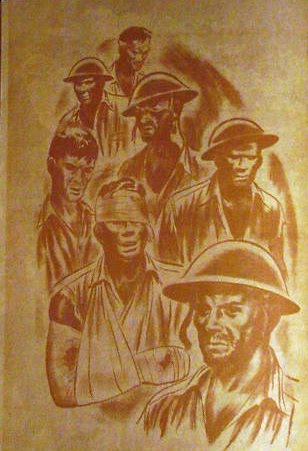

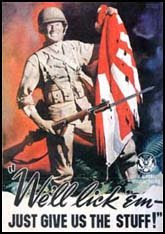
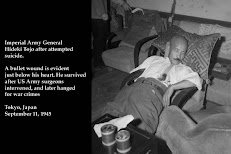



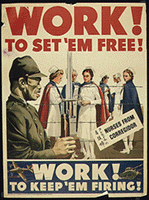








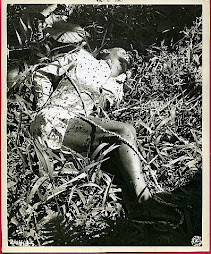.jpg)
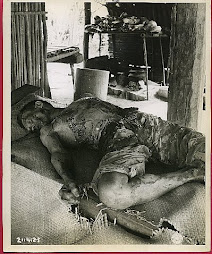
No comments:
Post a Comment